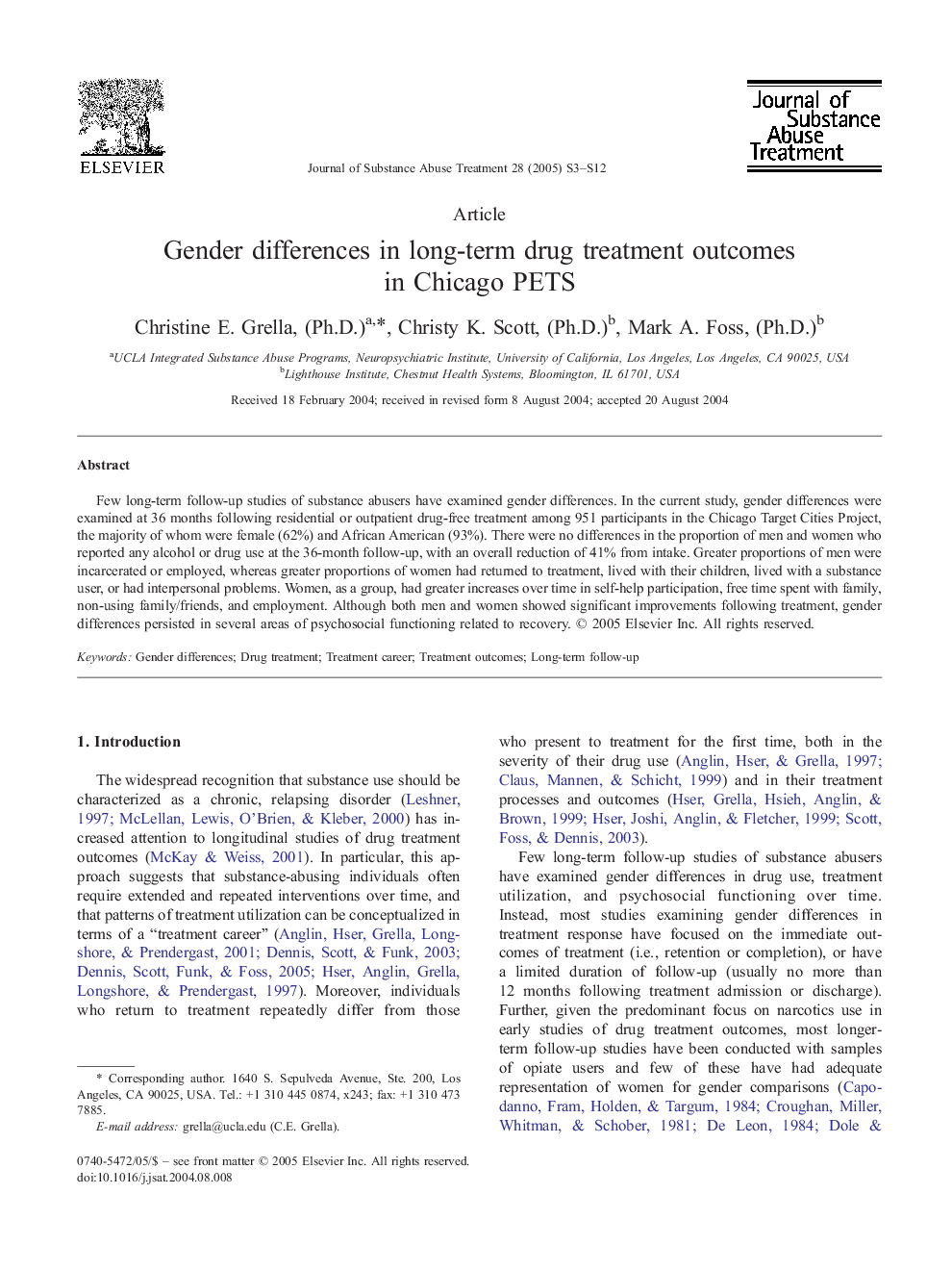| Article ID | Journal | Published Year | Pages | File Type |
|---|---|---|---|---|
| 10302766 | Journal of Substance Abuse Treatment | 2005 | 10 Pages |
Abstract
Few long-term follow-up studies of substance abusers have examined gender differences. In the current study, gender differences were examined at 36 months following residential or outpatient drug-free treatment among 951 participants in the Chicago Target Cities Project, the majority of whom were female (62%) and African American (93%). There were no differences in the proportion of men and women who reported any alcohol or drug use at the 36-month follow-up, with an overall reduction of 41% from intake. Greater proportions of men were incarcerated or employed, whereas greater proportions of women had returned to treatment, lived with their children, lived with a substance user, or had interpersonal problems. Women, as a group, had greater increases over time in self-help participation, free time spent with family, non-using family/friends, and employment. Although both men and women showed significant improvements following treatment, gender differences persisted in several areas of psychosocial functioning related to recovery.
Related Topics
Life Sciences
Neuroscience
Biological Psychiatry
Authors
Christine E. Ph.D., Christy K. Ph.D., Mark A. Ph.D.,
